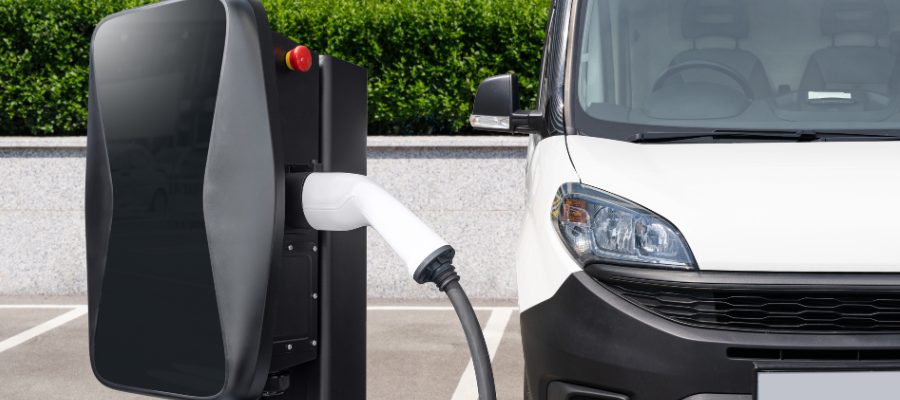🕒 Article read time: 2 minutes
Latest figures show more support needed for van operators to make zero emission switch, says Logistics UK

The van market continues to grow, according to figures from the Society of Motor Manufacturers and Traders (SMMT) published Wednesday 5 June. However, uptake of zero emission vehicles remains slow.
There were 25,853 light commercial vehicles (LCVs) registered in May, a rise of 1.9% and the 17th consecutive month of growth for the LCV market. The growth in the market was fuelled by an 8.1% increase in the uptake of vans weighing more than 2.0 tonnes up to 2.5 tonnes with 4,477 units registered last month compared with 4,143 in May 2023.
Although subject to low numbers of registrations, vans weighing less than 2.0 tonnes recorded the largest proportional growth, of 55.7% with 730 units registered last month compared with 469 in May last year.
As ever, most vehicle registrations last month came from the large vans weighing more than 2.5 tonnes up to 3.5 tonnes with 17,042 units compared with 17,173 for May 2023, which is a slight decline of -0.8%.
Overall, registrations for all vehicle segments are up in the year to date, including battery electric vans (BEVs) which saw an increase in registrations of 3.5% in May with 1,077 units registered compared to May 2023 when there were 1,041.
This means that BEVs reached a market share of 4.2% last month, almost unchanged since May 2023, when BEVs reached 4.1%. Whilst the increase is welcome, this segment is not growing at the pace required to meet the mandated Vehicle Emission Trading Scheme targets, which for each individual brand is set at 10% of sales for 2024.
Denise Beedell, Logistics UK’s Senior Policy Manager commented: “Another strong month for registrations of new vans in May is welcome news for the sector and indicates continued confidence by van operators as they continue to invest in their light vehicle fleets.
“However, whilst there was a small increase in the uptake of battery electric van registrations compared with last year, the figures clearly show that more needs to be done to support van operators make the switch to zero emission vehicles.

“Whilst electrification is an available and well understood technology, operators are still grappling with making the business case for electrifying their van operations.
“Many challenges remain for widespread electrification of van fleets relating to acquisition costs, energy supply and regulation and these must be addressed as a matter of urgency by the next government to help van operators fully decarbonise their operations and meet net zero deadlines in time.”.
Published On: 05/06/2024 15:00:00

Comments Section
If you are a Logistics UK member login to add comments.
News In Brief
DP World multi modal incentive extended
DP World is targetting an increase in rail's market share at its Southampton container terminal to 40% by 2026, which - if successful - would mean it will have almost doubled its rail operations over the last three years.
The company charges a “modal shift levy” of £10 on every full container passing through the port with freight owners recieing £80 for each container swapped out for rail journey. Journeys travelling more than 140 miles by rail see the £10 levy refunded.
The end goal is to make shorter distance rail travel more financially attractive with specific focus on the large distribution hubs in the Midlands, that have previously mostly been serviced by lorries heading from the south coast on the M3 and A34.
Since the programme launched in September 2023, the share of rail freight at Southampton has risen from 21% to 30%.
Latest articles
Generation Logistics Case Study
Niall Delargy, Senior Marketing Executive – Motia.
Read time: 2 minutes
View article
Member notice: Do you need to apply for an IVA for your vans and light goods vehicles?
Apply for Individual Vehicle Approval (IVA) if you're making or importing a very small number of vans or light goods vehicles (also known as IVA 1LG).
Read time: 2 minutes
View article
Thames’ biggest port launches new commercial vehicle charging hub
Fleete has unveiled its first major project in the UK with the development of a dedicated commercial vehicle rapid electric charging hub, believed to be the largest in the country.
Read time: 3 minutes
View article